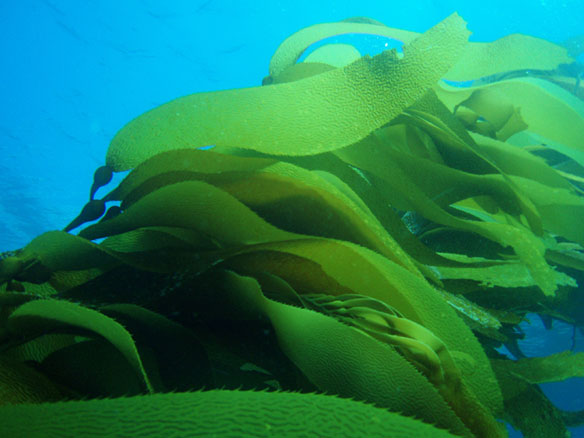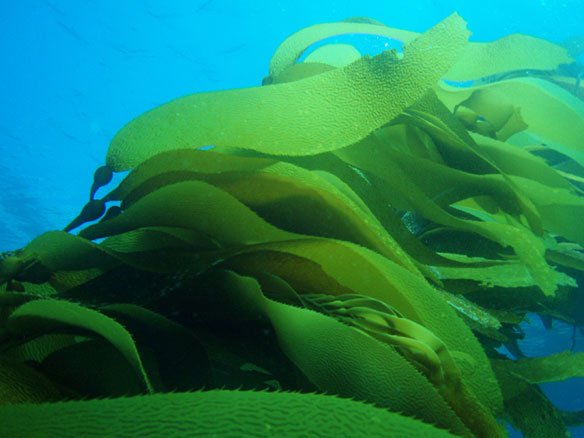
Giant Kelp, California, Channel Islands. Photo source: Claire Fackler / NOAA
Excerpts;
Radioactive iodine was found in kelp off the US West Coast following last year’s earthquake-triggered Fukushima Daiichi nuclear meltdown, according to a new study…
Abstract:
The Fukushima Daiichi Nuclear Plant, damaged by an earthquake and tsunami on March 11, 2011 released large amounts of (131)I into the atmosphere, which was assimilated into canopy blades of Macrocystis pyrifera sampled from coastal California.
The specific activity calculated to the estimated date of deposition/assimilation ranged from 0.6 to 2.5 Bq gdwt(-1), levels greater than those measured from kelps from Japan and Canada prior to the release. These (131)I levels represent a significant input into the kelp forest ecosystem. Canopy-forming kelps are a natural coastal dosimeter that can measure the exposure of the coastal environment to (131)I and perhaps other radioisotopes released from nuclear accidents.
An organizational mechanism should be in place to ensure that they are sampled immediately and continuously after such releases.









